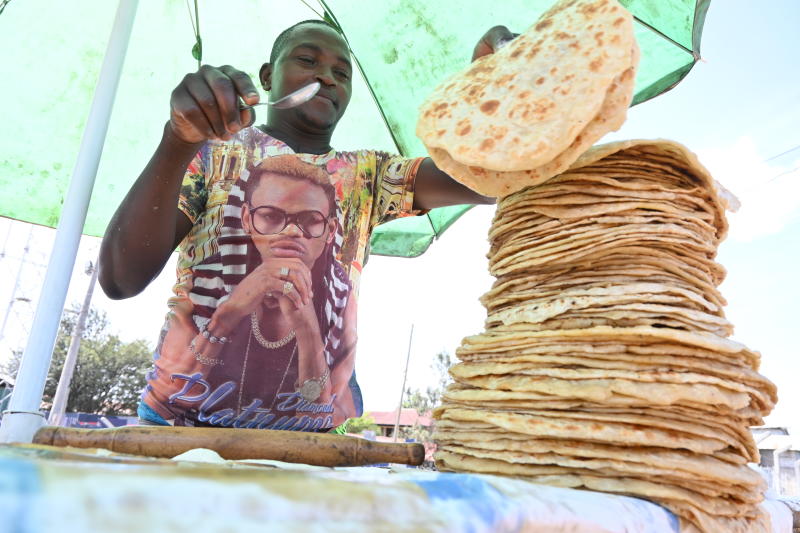×
The Standard e-Paper
Smart Minds Choose Us

One of the main ingredients now conspicuously missing in chapatis that Elijah Muchina makes is a smile. He cannot always afford it, more or less the same way he struggles to afford cooking fat.
It has been a difficult year, he says. By the road in Hunters, Kasarani, Muchina used to roll well over 700 chapatis a day. The last year has seen the figure reduce to just under 500. This happens as customers seem to be slowly disappearing, with ingredients that he uses to make his chapatis slowly going out of reach.